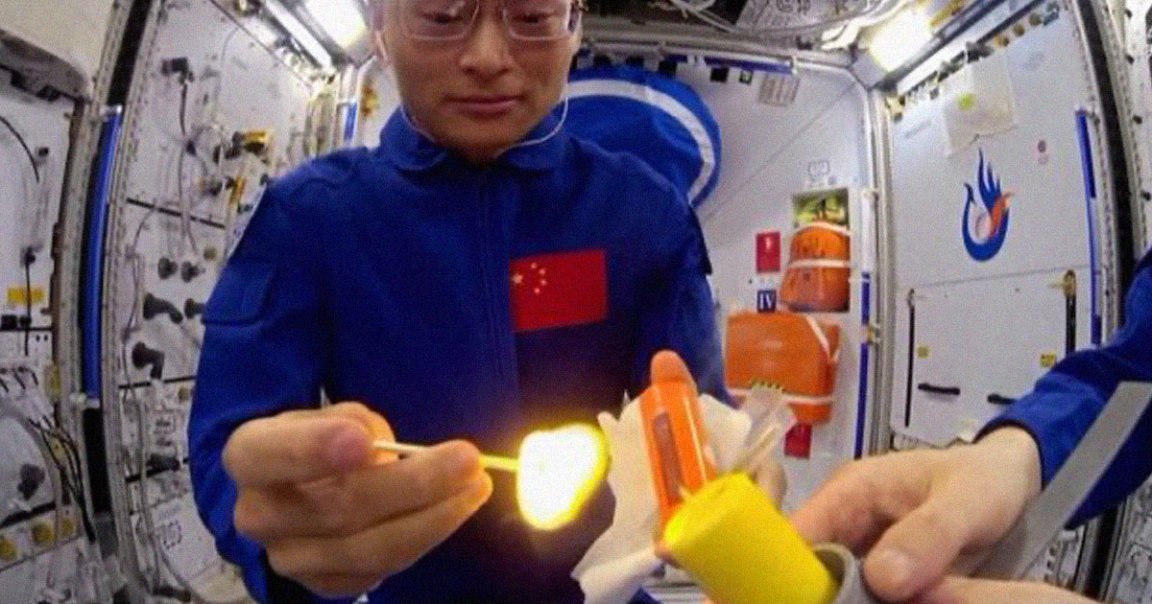
Matchbox Tiangong
Two astronauts on board China’s Tiangong space station have done the seemingly impossible: light a candle with a match during a live broadcast.
While striking a match isn’t exactly a high-risk maneuver here on Earth, the situation’s a lot more harrowing on board a space station. As Space.com points out, any forms of open flame are strictly prohibited on board the International Space Station.
The demonstration is a fun reminder of how fire behaves in microgravity environments. Instead of hot air rising, giving a flame its distinctive shape, the flame diffuses in all directions, causing the match to be engulfed in a small sphere of fire.
And given the risks involved, China’s space agency is clearly confident in its ability to suppress a fire in the case of an emergency.
Space Hotbox
While there are strict rules on board the ISS, NASA has been studying the behavior of fire in space for a number of years now to get a better grasp of how to make the environment safer for humans.
As part of the space agency’s Spacecraft Fire Safety Experiments (SAFFIRE) experiments, NASA has been lighting small flames on board uncrewed Cygnus cargo spacecraft, simulating what it would be like if future space travelers were faced with disaster.
The risk isn’t entirely theoretical. In 1997, the six crew members on board Russia’s Mir space station were shocked to discover a fire that ignited in an oxygen-generating system. The flame burned bright for several minutes, filling the station with smoke.
Fortunately, crew members were able to extinguish the flames, preventing any permanent damage to the structure.
Since then, we’ve learned a lot about what could trigger a fire. The ISS, for instance, has a redesigned oxygen-generating system that includes several redundancies and a cutting-edge fire detection system.
Given the taikonauts’ most recent livestream, China’s space agency likely thought ahead and implemented similar systems on board its Tiangong space station.
That can only be a good thing. Besides, a match could be a great way to mask the nasty odors known to accumulate in such a confined space.
More on fire in space: Watch a Fire Break Out on Board a NASA Spacecraft